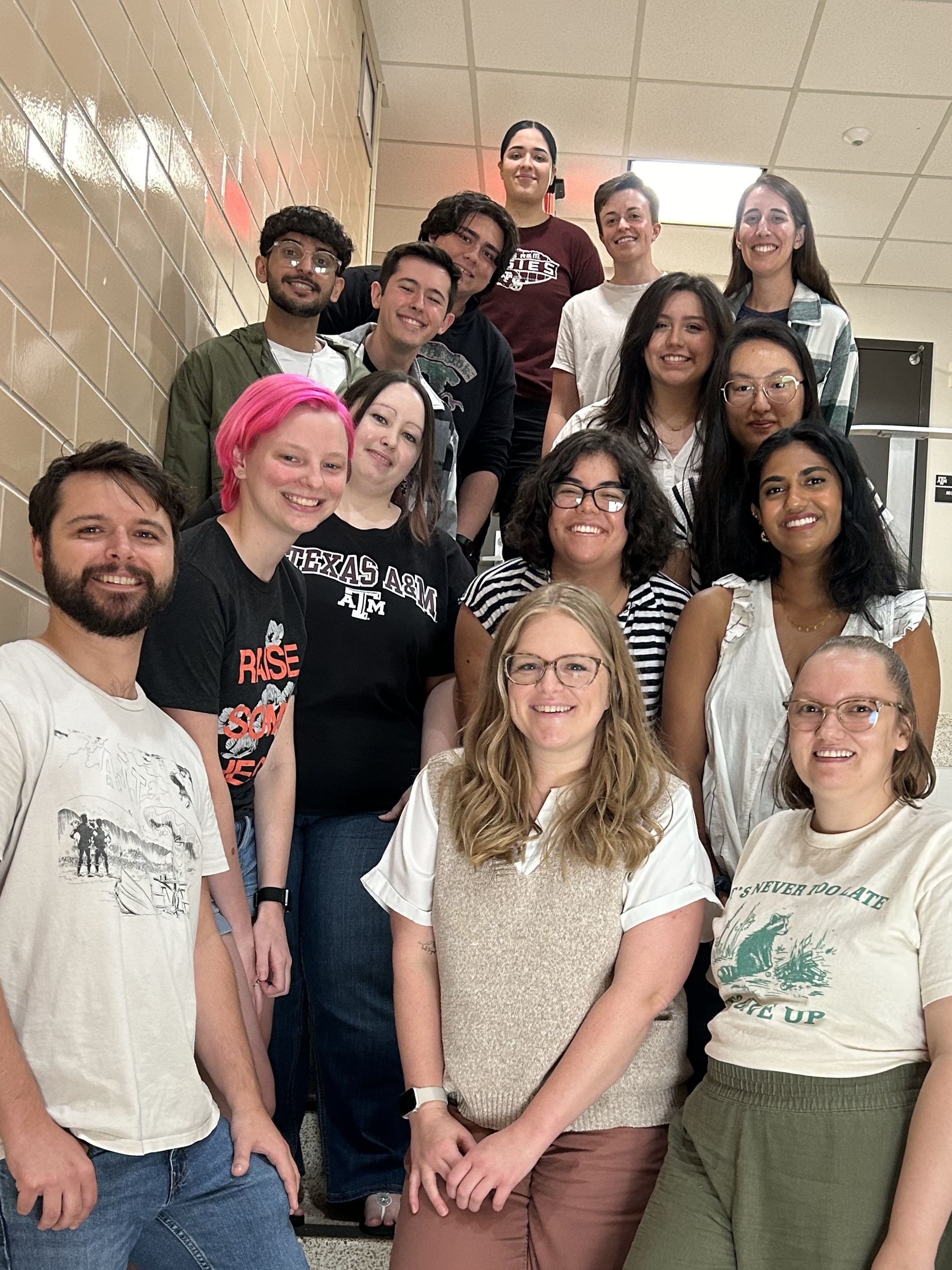PhD Students in Social and Personality Psychology 2024

The Social and Personality Program at Texas A&M covers traditional topics in both subfields, as well as exciting topics in the interdisciplinary programs of affective science, diversity science, and personality processes. The research interests and expertise of our faculty are listed below. Collectively, we are strongly committed to training graduate students to be outstanding psychological scientists through a contemporary and structured graduate curriculum that involves students in research from the start of their graduate careers.
Our graduate program provides hands-on, apprenticeship-based training with an approximately 2:1 student-faculty ratio. Graduate students spend much of their time working closely with faculty and other graduate students on research projects. Students become heavily involved in research immediately upon arrival at Texas A&M and they are encouraged to become increasingly independent researchers during their graduate careers. Current students publish papers in high impact journals and have received awards from the Society for Personality and Social Psychology. Graduates of the program have obtained jobs at major research institutions, well-regarded private liberal arts colleges, and research-focused industries.
The Social and Personality program supports an active speaker series that brings in outstanding researchers from other universities each year. This series provides exposure to different perspectives on the field and the opportunity to network with professors at other institutions. Graduate students are also required to present during the speaker series to gain experience presenting and to obtain feedback on their ongoing research programs. This creates a supportive and exciting intellectual environment and helps graduate students become active contributors to a scholarly community.
Our faculty members are accomplished, energetic, and collaborative. They publish high-quality papers with their graduate students in leading outlets and they have received multiple research grants from agencies like the National Science Foundation and the National Institutes of Health. Members of the faculty currently serve as editors or associate editors of major journals. Applications for admission are due on December 1 of each year.
Social Curriculum
| Faculty | Research Interests | Accepting Students for 2026-2027 |
|---|---|---|
| Joshua Hicks | Psychological Well-Being; Existential Psychology; Self-Knowledge | No |
| Daniel Howard | Examination of epidemiologic patterns of health outcomes that disproportionately affect African Americans; minority health and health disparities; | No |
| Heather Lench | Emotion; Affective Forecasting; Optimistic Bias; Motivated Cognition | No |
| Vani Mathur | Pain; Empathy; Social and Cultural Neuroscience; Sociocultural Contributions to Heath Disparities | Yes |
| Allegra Midgette | Culture; Gender; Social inequality; Morality and moral development; Care; Family | Yes |
| Rebecca Schlegel | Self and Identity; Well-being; Authenticity | No |
| Brandon Schmeichel | Motivation; Emotion; Self-Control | Yes |
| Rachel Smallman | Counterfactual thinking and health-related behaviors; Cognitive and Motivational Processes in Decision-making | Yes |
| Matthew Vess | Psychological processes and consequences associated with people’s efforts to manage existential concerns. | Yes |

